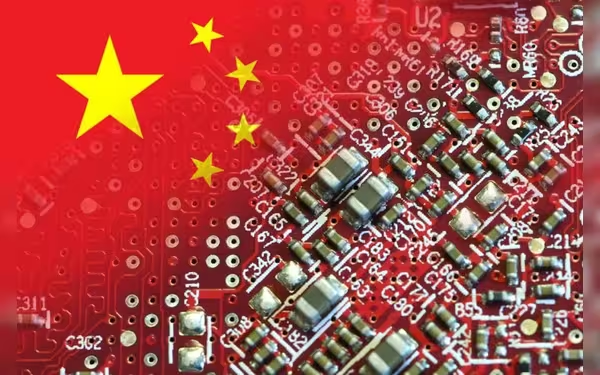Tuesday, July 2, 2024 03:57 PM
Chinese AI Chip Companies Adapt to US Export Regulations
- Chinese fabless companies modify chip designs to comply with US regulations
- TSMC receives adjusted chip designs from MetaX and Enflame for production
- US export restrictions impact MetaX's timeline for mass production of C500 chips
 Image Credits: asiatimes
Image Credits: asiatimesChinese AI chip companies adapt chip designs to meet US export regulations, impacting production timelines and highlighting the importance of compliance in global chip production.
Chinese fabless companies specializing in artificial intelligence chip production have made strategic adjustments to comply with stricter US export regulations. This move ensures their ongoing access to manufacturing facilities in Taiwan, a crucial hub for chip production.
Shanghai-based GPU designers MetaX and Enflame have recently submitted modified chip designs to Taiwan Semiconductor Manufacturing Co (TSMC) to align with the new requirements set forth by the US authorities. MetaX, in particular, had to switch from their advanced C500 chip design to the C280 model due to stock shortages earlier in the year.
While TSMC has affirmed its dedication to adhering to relevant regulations, the status of mass production for MetaX's C500 chips remains uncertain. Public records reveal that MetaX had completed basic testing of the C500 chips in June of the previous year and had plans to commence mass production by the end of that year, a timeline that may have been impacted by the US export restrictions.
The US Commerce Department's Bureau of Industry and Security introduced new regulations in October, specifically targeting the export of chips with certain processing performance thresholds to China. These regulations resulted in the blocking of Nvidia's A800 and H800 chips from being shipped to China. The A800 chip's performance closely resembled that of the A100 model, which had already been banned from export to China in a prior ruling.
The adjustments made by Chinese AI chip companies in response to the US export regulations highlight the complex interplay between technology, regulations, and international trade. These developments underscore the importance of compliance and adaptation in the ever-evolving landscape of global chip production.













